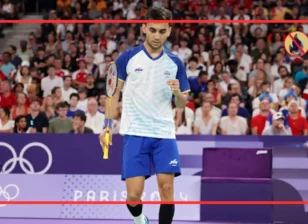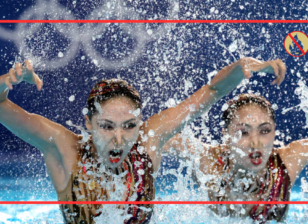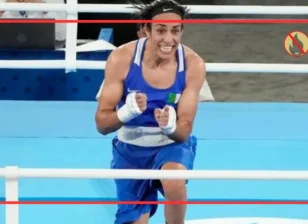Paris Olympics 2024 and the Controversy Surrounding AI Surveillance
While France is busy preparing to host the Summer Olympics in 2024, a number of concerns have been raised about significant challenges in terms of peace and security for the overall event. To undermine the volatility in terms of security, the French government announced AI Video Surveillance for the Paris Olympics 2024. However, this has sparked massive controversy and debate among advocates of privacy and human rights watchdogs.
The legislation presented by lawmakers allows the use of Algorithmic Video Surveillance (AVS) in any sporting events and concerts encompassing more than 300 people. AI Video Surveillance system is based on a technique that does not use biometric identification or facial recognition but relies on technology to quickly analyze video clips to detect suspicious objects, fires, and other potential security threats.
Despite having the support from the proponents of the AI security systems, this special legislation for Paris Olympics 2024 is facing massive backlash from human rights advocates including Amnesty International as well as the Parliament of the European Union. Let us analyze the situation from both contradicting perspectives.
Proponents of Using AI Video Surveillance for the Paris Olympics 2024
Proponents of AI being used in security systems argue that it will improve safety during the Olympics by allowing security forces to respond more quickly to potential dangers. They are of the view that the ability to quickly identify and resolve security issues is important to the French government and the Olympic organizers for a smooth execution of the event.
Artificial intelligence video surveillance may pave the way for future implementation of voice and facial recognition systems and have the potential for facial recognition functions to be activated in the system sometime in the future. However, the text of the law on the Olympic Games is expected to undergo changes and further scrutiny in the National Assembly and Senate before final adoption in the near future.
Critics of Using AI Video Surveillance for the Paris Olympics 2024
In contrast to the proponents, critics are of the view that AI Video Surveillance may result in an unprecedented invasion of privacy coupled with the doubtful effectiveness in deterring crimes. The significance of the critics can be seen from the participants of adverse opinion which include human rights activists, the EU Parliament, and Amnesty International. They put a lot of emphasis on the point that French lawmakers must reject any plans to use AI-backed Video Surveillance Technology at the Paris Olympics 2024. They argue that rights to freedom of expression and peaceful assembly can be violated by the use of such repressive technologies. On the other hand, they are also concerned that the government might use the system outside the Olympics to prolong its usage.
AI Surveillance might attack privacy rights
As AI technology is based on machine learning and certain algorithmic patterns, antagonists are of the view that it might lead to a significant infringement on the privacy rights of individuals concerned. Because it enables police to analyze the behavior of people and make judgments based on subjective stereotypes which can lead to further discrimination in providing privacy rights to the people. Understandably, the legislation undermines rights to privacy, protest, and freedom of assembly and expression, contrary to France’s global image as a champion of human rights according to human rights organizations.
AI Technology might be discriminatory
As mentioned above, the AI uses certain algorithmic patterns to learn from the provided data and make decisions that are based on that data. However, there are a number of concerns being raised against the working mechanism of AI Video Surveillance, because the data provided to train the system might be inherently biased in nature. For example, discriminatory biases in AI-based surveillance have been observed in the past, particularly in the process of surveillance of the Muslim community of Uighur in China. Critics are afraid that the evolution of civil liberties could be eroded by the possibility of the first special use during the Paris Olympics 2024 returning to normal and expanding to other situations as well.
Concluding Remarks
In a nutshell, the approval of controversial video surveilling for the Paris Olympics has sparked a fierce debate between proponents emphasizing security benefits and critics expressing concerns over privacy, potential discrimination, and the broader implications for civil liberties in France and beyond. It is important for France to take robust measures to minimize the controversy before the wonderful event of the Olympic Games becomes controversial permanently.





